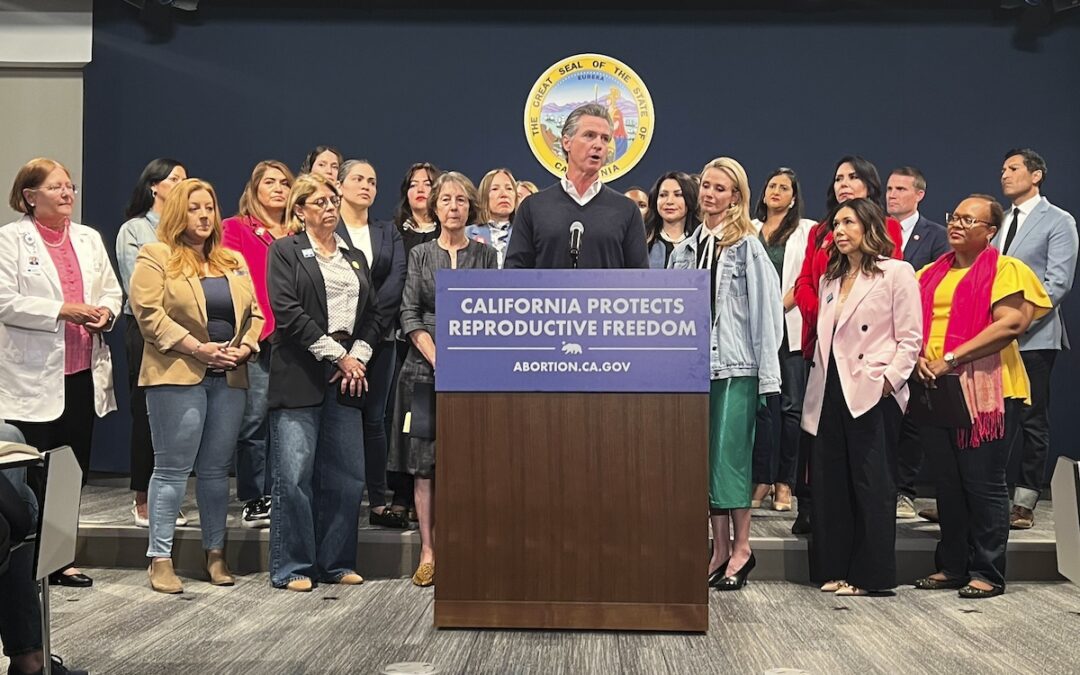
Alberto Ortega/Getty Images
More marijuana sales mean more funding for community colleges throughout Arizona.
The state’s 10 community college districts got a windfall of over $31 million from big spending on recreational marijuana in the first year of sales in 2021.
The Proposition 207 voter initiative that legalized recreational marijuana created an excise tax of 16% and required the state to distribute about one-third of that money to community colleges, with the rest mostly to public safety departments and transportation, health, and criminal justice programs.
Colleges can use the funds for workforce development, STEM, and certain other education programs, the Arizona Republic reported.
The funding boost to colleges is significant — it’s less publicized, but about equal in size to Gov. Doug Ducey’s proposal to put $30 million in federal funds toward six new “workforce accelerators” at community colleges across the state.
Community college officials said they plan to use the marijuana tax money in a range of ways, including to expand public safety programming, add new career training initiatives and help fund construction projects.
Colleges got varying amounts from the sales tax revenue in June and December based on their enrollment, according to distribution reports from the state treasurer.
Cochise College, which received over $2 million last year, is using the funds to significantly expand programming at its first responders academy.
“It wouldn’t be done at the level that we’re now able to do because of those dollars coming in,” Cochise College President J.D. Rottweiler said. “It really allows us to springboard this initiative and move it quicker at a time when our frontline workers” are greatly needed.
Maricopa Community Colleges, the state’s largest system, got more than $17 million from the marijuana tax fund last year, which it plans to use for workforce programs and potentially use $5 million for bridge funding to help cover expenses related to workforce or STEM due to budget shortfalls.
The money comes at a time when some community colleges continue to struggle with a slow rebound from the pandemic, with Maricopa for example seeing decreased enrollment and financial challenges.
Here’s approximately what colleges received and how they plan to spend it:
Maricopa Community Colleges: $17.2M
Maricopa has put $7.6 million toward operational costs for its skills centers at GateWay Community College, which provide training in trades and technical areas. The centers offer short-term certificate programs specific to careers in fields like health care, technology, trades and beauty and wellness, according to the district.
Officials may also put $5 million toward bridging gaps in operational spending, according to a proposed budget presented to the governing board last month. That’s not enough to cover the $51 million general fund shortfall the district is projecting without any budget interventions next year, so cuts and tuition hikes may be coming in the years ahead.
The Proposition 207 bridge funding would only be used to cover allowable workforce or science, technology, engineering and math-related expenses in the general fund, according to spokesperson Matt Hasson.
The district is still deciding which workforce-related projects the remaining about $4.6 million will fund.
Pima Community College: $3.9M
Pima Community College, the next largest system in the state, spent some of the Proposition 207 funds on capital projects to expand and remodel health professions spaces and science labs, per spokesperson Libby Howell.
Cochise College: $2.1M
Funds are going toward the first responders academy for police, fire, and emergency medicine, including to finish the academy facility and pay for expanded faculty and staff. The college may also use the money to grow its wildland fire, condensed training, and continuing education programs for public safety agencies, Rottweiler said.
Arizona Western College: $1.7M
The Yuma-based college plans to use funds toward the $35 million in revenue bonds it was issued to update facilities, including for programs in e-gaming, cybersecurity, and allied health, according to spokesperson Mandy Heil. Arizona Western College also is using some of the money for a “living-learning facility” to replace an old residence hall.
Arizona Western College covers Yuma and La Paz counties.
Yavapai College: $1.4M
The Proposition 207 money will help expand services at the college’s Regional Economic Development Center, spokesperson Tyler Rumsey said. The center helps promote economic development, workforce growth, and regional collaboration.
Central Arizona College: $1.3M
Central Arizona College in Pinal County is putting the money toward public safety program initiatives like improving the driving track and shooting range, police equipment, ammunition and other supplies, according to CFO Chris Wodka. They will spend the remaining money on STEM and workforce development programs.
Mohave Community College: $1.1M
Mohave Community College will use some of the funds to help pay for construction of an advanced manufacturing training center at the Kingman Airport Industrial Park. The college may also use the money to expand career and technical education and STEM programs based on northwestern Arizona workforce needs, per spokesperson James Jarman.
Eastern Arizona College: $1M
The Thatcher-based college will use the marijuana sales tax money to help build a skills center for multiple workforce development programs targeted at providing skills and credentials for in-demand careers in the local area, per spokesperson Kris McBride.
Coconino Community College: $930K
Coconino is using the funds to expand career and technical education offerings, including starting some new programs. Funds have helped support additional faculty and grow programs in emergency medical services, fire science, early childhood education, and marine maintenance, per Executive Vice President Jami Van Ess.
Northland Pioneer College: $900K
The community college with campuses in Navajo County may use the funds to expand welding and early childhood education programs, according to college President Chato Hazelbaker. And by fall 2023, the college plans to launch a new workforce program with the sales tax money, he said.
Provisional districts: $228K and $112K
The Gila and Santa Cruz county provisional community college districts also got smaller portions of the state funds. Those colleges contract with other counties’ colleges for programs — Gila with Graham County’s Eastern Arizona College, and Santa Cruz with Pima County’s Pima Community College.
Politics

Gov. Gavin Newsom wants to let Arizona doctors provide abortions in California
California law generally allows abortion up to the point of fetal viability, which is around 24 weeks. SACRAMENTO, Calif. (AP) — Arizona doctors...

VIDEO: Arizona Attorney General Kris Mayes indicts 18 ‘fake electors’
@coppercourier An Arizona grand jury has indicted former President Donald Trump's chief of staff, Mark Meadows, lawyer Rudy Giuliani, and 16...
Local News

Escape the heat at these indoor pools in Tucson
Arizona: it's synonymous with sunny. Mix that sun with the sprawling urban blacktops and the result is the nationally recognized heat that is...

We asked, you answered: 7 music venues in Arizona for a more intimate show
The biggest artists in the world come to Arizona to perform at places like Footprint Center, State Farm Stadium, and Desert Diamond Arena. But what...





